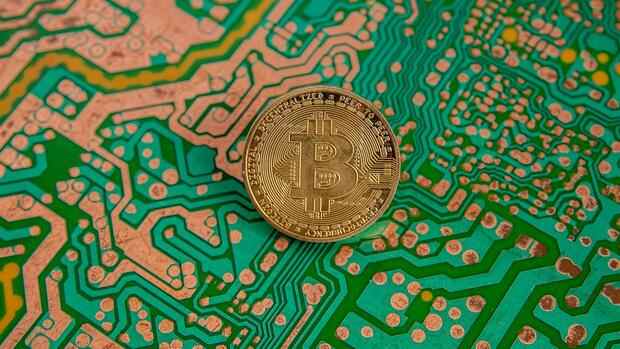Cryptocurrencies provide a decisive impetus for a reorganization of our monetary order, says Daniel Stelter.
(Photo: imago images / photo booth)
The prices of Bitcoin and other cryptocurrencies have hit new record highs. I do not want to judge whether the expectations of the optimists, who predict a further doubling by next spring, will be fulfilled. I agree with Isaac Newton. In 1720, after losing a lot of money in the South Sea Bubble, he declared that he could “calculate the movements of the celestial stars, but not the madness of people”.
Fears of inflation and concerns about the stability of the financial system, which the central banks have led to a dead end, are cited as reasons for the spectacular development. The fact that gold, valued for around 6000 years for similar reasons, is in the red this year is dismissed with the hint that millennials prefer to rely on modern technology.
Both gold and cryptos may serve as a store of value, but they do not offer participation in the productive development of the world. This also underlines the example, often cited by gold fans, that for the value of an ounce in ancient Rome you got a good toga and today you get a good suit. In relation to economic output, suits became significantly cheaper.
Both fulfill the function of money inadequately due to the fact that transaction costs are too high. Nevertheless, the cryptos are providing a decisive impetus for a reshaping of our monetary order, which is more than overdue 50 years after the US dollar was pegged to gold. The problems are too obvious – record debts, bubbles, spirals of intervention. This is where Amazon, Apple, Google & Co. could start and create inexpensive, global alternative currencies.
Top jobs of the day
Find the best jobs now and
be notified by email.
States and central banks fear this competition, since the state monopoly creates power and profits. This is behind the efforts to forestall private initiatives with digital central bank money. Similar to the discussion about the changeover to a sovereign money system, the proponents see this as a possibility to stabilize the financial system and to give the citizens fail-safe money – instead of just a claim against their bank. We are even talking about modern cash.
Daniel Stelter is the founder of the discussion forum beyond the obvious, which specializes in strategy and macroeconomics, and is a management consultant and author. Every Sunday his podcast goes online at www.think-bto.com.
(Photo: Robert Recker / Berlin)
However, digital central bank money would not be a substitute for cash. It would be the entry into a world in which there are no secrets. Every citizen would be transparent with his behavior, undesirable behavior such as alcohol consumption or excessive CO2 consumption could be recorded and sanctioned. The policy of market manipulation and expropriation through negative interest rates could be implemented even more effectively. The tradition of abuse of the money monopoly would enter a new phase. We should not leave the shaping of the new monetary order to those who are already doing it badly. The future must lie in the competition of money providers.
More: Comment: The digital euro deserves healthy skepticism.
